Sierra Tucson believes that residential treatment is the beginning of the recovery process. Because of this, there is a strong belief in, and focus on, continuing care throughout an individual’s time in treatment.
Preparation for continuing care begins upon admission in the assessment phase of treatment and continues until discharge, at which time the resident has a clearly defined, individualized written plan for ongoing recovery.
Relapse Prevention Groups
The entire treatment team is responsible for relapse prevention and continuing care planning. Residents attend relapse prevention groups regularly, with specific meetings dedicated to continuing care each week. This prompts them to understand the importance of continuing care and to think about what their discharge plan might look like. They learn about the various options available, including resources at home, extended care, transitional living, and intensive outpatient programs. Residents then begin to outline individual needs and goals that integrate 12-Step meetings and other sources that support continued recovery in family and primary relationships; spirituality; social and recreational activities; medical needs; fitness and nutrition; and vocational, educational, financial, or legal areas.
Continuing Care Recommendations
Each resident’s primary therapist works with him or her on a weekly, one-on-one basis to hone and define the resident’s understanding of the disease process, coping skills, and support systems necessary for prevention of relapse. With input from the resident’s referring professional, family, and his or her treatment team, a continuing care coordinator will provide recommendations. Residents whose treatment plan includes medications will schedule a follow-up appointment with a psychiatrist for continued evaluation, as well as make appointments for follow-up care, prior to discharge.
A Sustained Recovery
Although residents must complete their continuing care plan during treatment, they receive support and strength from their peers throughout their stay. The Continuing Care and Alumni Relations teams ensure each individual is aware of the many resources available for sustained recovery. Alumni contacts are given, where applicable, to ease the transition for residents returning to their home environment.
Sierra Tucson considers the continuing care plan to be one of the most important tools that a resident takes with him or her. In addition to our continuing care programming, residents can opt to enroll in Connect365—our year-long continuing care service that fosters healthy recovery by providing a personal recovery coach and customized mobile app to encourage regular contact and check-ins.
Overall, the collaboration between the resident, treatment team, referring professional, and family members results in a solid plan for continued success.
Keeping in Touch
The Alumni Relations team is committed to offering a lifetime of support and resources for its alumni community through ongoing outreach, alumni support groups and continuing care groups across the U.S., alumni workshops, alumni dinners, a monthly e-newsletter, a Sierra Tucson Serenity Cam, and an annual Alumni Retreat, to name a few.












